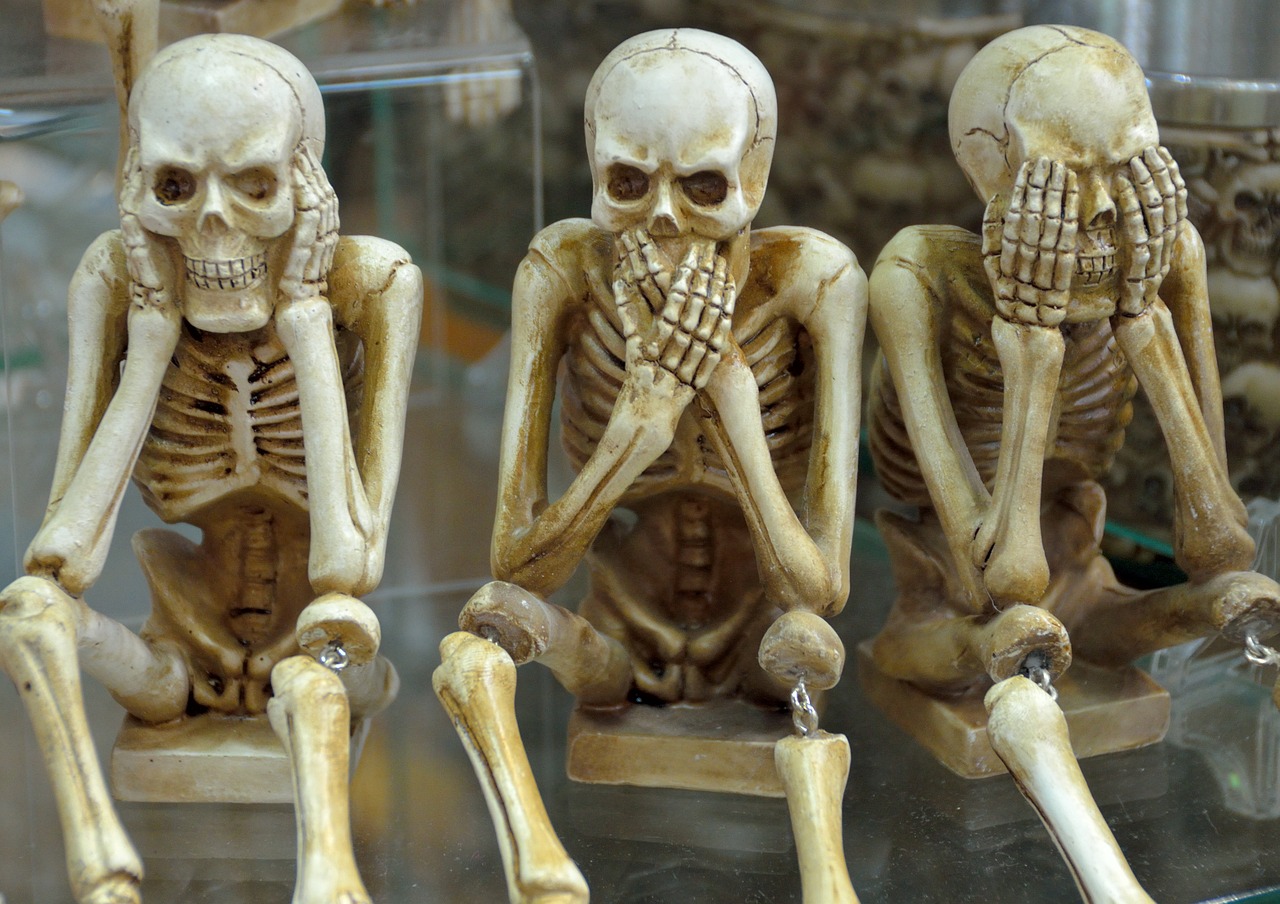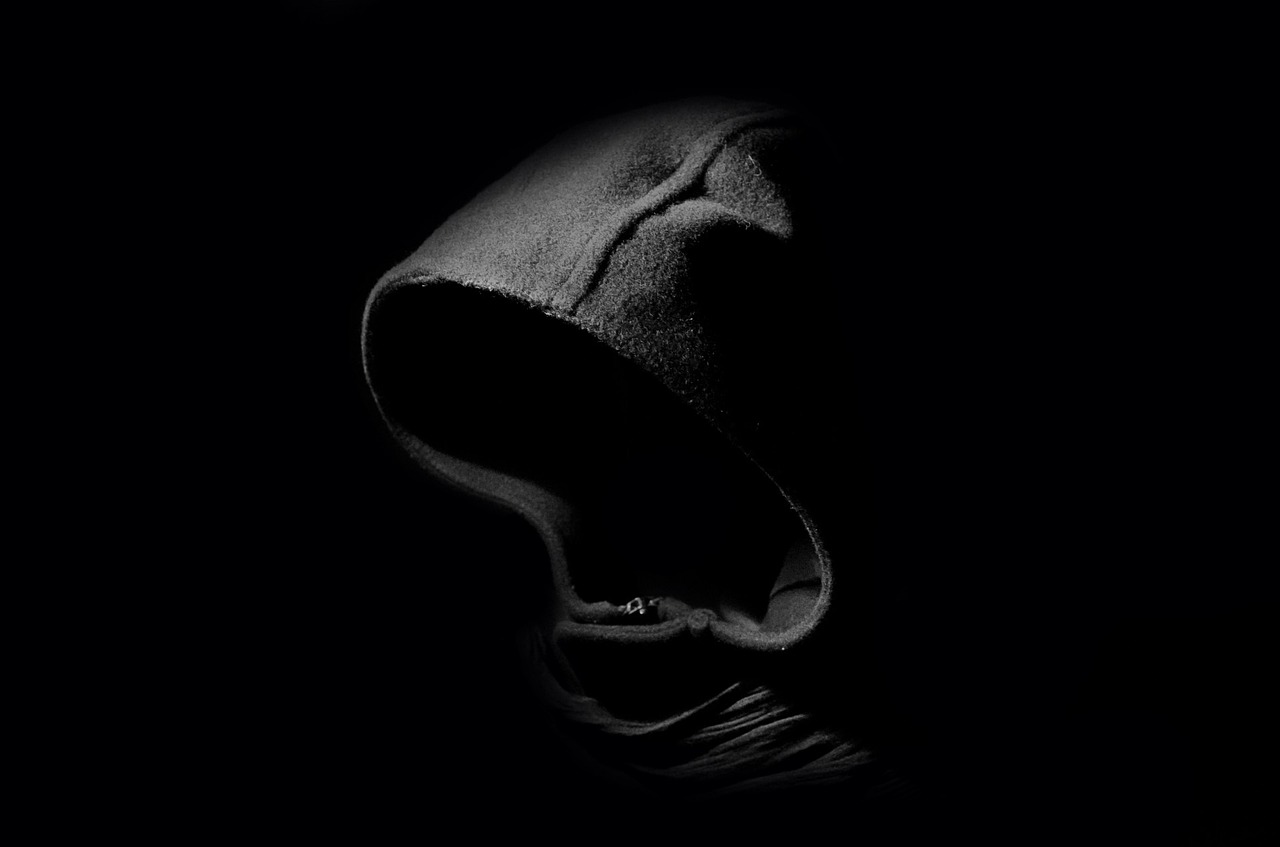The Problem of Evil - A Theological and Philosophical Perspective
The problem of evil is one of the most profound and perplexing issues in both theology and philosophy. It challenges our understanding of existence, morality, and the nature of a benevolent deity. Why does evil exist in a world governed by a God who is omnipotent, omniscient, and omnibenevolent? This question has sparked countless debates, discussions, and reflections throughout history. From the ancient philosophers to modern theologians, the quest to understand evil has been a central theme in human thought. In this article, we will explore the complex issue of evil from various angles, examining its implications for faith, morality, and human existence.
Understanding the essence of evil is crucial in addressing its existence. Evil has been defined and interpreted in numerous ways across different philosophical and religious frameworks. Some view evil as a tangible force, while others see it as a mere absence of good. For instance, St. Augustine famously posited that evil is not a substance but rather a privation of good—much like darkness is the absence of light. In contrast, other philosophies, such as Gnosticism, suggest that evil is an inherent part of the material world, created by a lesser deity. This diversity in definitions raises essential questions about the nature of evil and its role in human life.
Theodicy attempts to reconcile the existence of evil with the belief in a benevolent deity. It seeks to answer the question: If God is good, why does evil persist? Various theodicies have emerged throughout history, each offering different perspectives. Some argue that evil is a necessary counterpart to good, while others suggest that it serves a greater purpose in the divine plan. The effectiveness of these arguments often lies in their ability to address the emotional and existential struggles faced by individuals grappling with suffering and injustice.
Classical theodicies, such as those proposed by Augustine and Leibniz, offer traditional explanations for the coexistence of God and evil. Augustine's view emphasizes human free will, suggesting that evil results from the misuse of this gift. Leibniz, on the other hand, introduced the idea of "the best of all possible worlds," arguing that the presence of evil is a necessary condition for a greater good. While these arguments have their merits, they have also faced significant critiques, particularly regarding their ability to adequately address the sheer volume and intensity of suffering present in the world.
The free will defense posits that evil results from human choices. This argument is compelling because it places moral responsibility on individuals rather than attributing evil directly to God. However, it raises questions about divine omniscience. If God knows that humans will choose evil, can He still be considered wholly good? This paradox invites further exploration into the nature of divine foreknowledge and human autonomy.
Natural law theodicy suggests that evil is a necessary consequence of a world governed by natural laws. For example, the existence of natural disasters can be seen as a byproduct of the physical laws that maintain the universe. While this perspective offers a rational explanation for certain types of evil, it can be challenging to reconcile with moral evils, such as violence and cruelty inflicted by humans upon one another.
Modern theodicies have emerged in response to classical arguments, addressing contemporary issues and concerns. These perspectives often incorporate elements of existentialism and process theology, emphasizing the dynamic nature of God and creation. They explore the idea that God is not a distant observer but is actively involved in the struggle against evil, working through human actions and experiences to bring about healing and redemption.
Different religions perceive and interpret evil uniquely, providing rich insights into the human condition. Christianity, Islam, and Buddhism, among others, offer distinct frameworks for understanding the problem of evil. Each tradition grapples with the existence of suffering and the moral implications of evil, shaping their followers' beliefs and practices.
Christianity provides a unique perspective on evil, often rooted in the narrative of sin and redemption. The concept of original sin explains the entrance of evil into the world and the subsequent need for salvation through Jesus Christ. This theological framework emphasizes the transformative power of grace, suggesting that while evil exists, it does not have the final say in the story of humanity.
In contrast, Eastern religions like Buddhism and Hinduism approach evil through concepts such as karma and illusion. In Buddhism, evil is seen as a product of ignorance and attachment, leading to suffering. The cycle of rebirth and karma illustrates how actions have consequences, emphasizing personal responsibility in the face of evil. This philosophical approach encourages individuals to seek enlightenment and liberation from the cycle of suffering.
The relationship between evil and human suffering is a profound concern. Suffering shapes our understanding of evil and its impact on faith and morality. It raises questions about the purpose of pain and whether it can lead to personal growth or deeper empathy. Existentialist thinkers, for instance, argue that suffering can illuminate the human experience, prompting individuals to confront their existence and seek meaning in a chaotic world.
Existentialist philosophers like Jean-Paul Sartre and Viktor Frankl provide valuable insights into the meaning of suffering. They suggest that while suffering is an unavoidable part of life, it can also serve as a catalyst for personal transformation and a deeper understanding of oneself and others. This perspective challenges us to find purpose amid adversity, prompting us to question our beliefs and values.
Evil can have significant psychological effects on individuals and communities. The emotional and mental health implications of experiencing or witnessing evil are profound, often leading to trauma, anxiety, and a sense of powerlessness. Understanding these impacts is crucial for healing and recovery, as it allows individuals to process their experiences and rebuild their lives in the aftermath of suffering.
The problem of evil raises critical questions in moral philosophy. It challenges ethical frameworks and prompts us to reconsider our understanding of moral responsibility. How do we define good and evil? What obligations do we have to prevent or respond to evil actions? These questions compel us to examine our ethical beliefs and the societal structures that influence our responses to evil.
Utilitarianism offers a consequentialist view on evil, focusing on the outcomes of actions. This ethical framework evaluates the morality of an action based on its ability to produce the greatest good for the greatest number. While this perspective can provide practical solutions to ethical dilemmas, it may struggle to account for the inherent value of individual rights and the complexities of moral choices.
In contrast, deontological ethics emphasize duties and principles, providing a different lens to view evil. This approach asserts that certain actions are inherently right or wrong, regardless of their consequences. It challenges individuals to adhere to moral imperatives, even in the face of evil. This tension between duty and outcome invites ongoing debate within moral philosophy, highlighting the intricacies of ethical decision-making.
- What is the problem of evil? The problem of evil refers to the philosophical and theological dilemma regarding the existence of evil in a world created by a benevolent and omnipotent God.
- How do different religions interpret evil? Different religions offer unique perspectives on evil, with Christianity focusing on sin and redemption, while Eastern religions like Buddhism emphasize karma and the illusion of self.
- What is the free will defense? The free will defense argues that evil results from human choices, positing that moral responsibility lies with individuals rather than God.
- Can suffering have a purpose? Many existentialist thinkers argue that suffering can lead to personal growth and a deeper understanding of existence, prompting individuals to seek meaning in their experiences.

The Nature of Evil
Understanding the essence of evil is crucial in addressing its existence. Evil is often perceived as a profound and perplexing phenomenon, one that challenges our moral compass and philosophical reasoning. At its core, evil can be defined in various ways, depending on the philosophical or religious lens through which it is viewed. For instance, some might argue that evil is merely the absence of good, a concept famously articulated by Augustine of Hippo. This perspective suggests that evil doesn't have a substantial existence of its own but rather exists as a deficiency in goodness.
On the other hand, many philosophical frameworks propose that evil is an inherent aspect of the human condition. This view posits that evil arises from human nature, influenced by factors such as greed, ignorance, and desire. In this sense, evil becomes a reflection of our choices and actions, making it a deeply personal and subjective experience. The complexity of evil is further highlighted by the distinction between moral evil—actions committed by individuals that cause harm to others—and natural evil, which refers to suffering caused by natural disasters or diseases.
To grasp the multifaceted nature of evil, it's essential to explore various interpretations across different cultural and religious contexts. Here are a few notable perspectives:
- Religious Interpretations: Many religions view evil as a force that opposes the divine. For example, in Christianity, evil is often linked to the concept of sin, while in Buddhism, it may be seen as a manifestation of ignorance.
- Philosophical Perspectives: Philosophers like Kant and Nietzsche have debated the morality of evil, questioning whether it is an intrinsic part of human existence or a construct of societal norms.
- Psychological Views: The psychological aspect of evil examines how trauma, upbringing, and societal influences can lead individuals to commit acts that are deemed evil.
Moreover, the existential perspective on evil challenges individuals to confront the absurdity of existence in a world where suffering and evil are prevalent. Thinkers like Jean-Paul Sartre argue that the presence of evil forces us to find meaning in an otherwise chaotic world. This confrontation with evil can lead to a profound transformation in how we perceive ourselves and our place in the universe.
Ultimately, the nature of evil is not a question with a straightforward answer. It invites us to ponder profound questions about morality, existence, and the human condition. Is evil an external force, a personal choice, or a societal construct? As we navigate through these complex layers, we may find that understanding evil is less about finding definitive answers and more about exploring the depths of our own humanity.

Theodicy: Justifying God's Goodness
The concept of theodicy emerges as a pivotal attempt to reconcile the existence of evil with the belief in a benevolent and omnipotent God. At its core, theodicy seeks to address the age-old question: how can a loving and powerful deity allow suffering and evil to exist in the world? This inquiry is not merely academic; it strikes at the heart of human experience, influencing our understanding of faith, morality, and existence itself. As we navigate through various theodicies, we uncover the intricate tapestry of thought woven by theologians and philosophers alike, each offering unique perspectives in their quest to justify God's goodness amidst the chaos of evil.
Throughout history, several prominent theodicies have emerged, each attempting to provide a coherent explanation for the presence of evil in a world governed by a just and loving God. These include:
- Augustinian Theodicy: Rooted in the writings of St. Augustine, this perspective argues that evil is not a created entity but rather a privation of good, a consequence of humanity's free will.
- Leibniz's Theodicy: Gottfried Wilhelm Leibniz posited that our world, despite its evils, is the "best of all possible worlds," where the existence of evil serves a greater purpose in the divine plan.
- Free Will Defense: This argument suggests that God granted humans free will, which inherently allows for the possibility of choosing evil, thus preserving the value of genuine love and moral choice.
Each of these theodicies presents a different facet of understanding, yet they all grapple with the same fundamental question: how can we affirm God's goodness in the face of undeniable suffering? Critics of traditional theodicies often point out their limitations, arguing that they can sometimes seem inadequate in the face of extreme suffering, such as natural disasters or atrocities committed against innocents. This criticism leads to the development of modern theodicies, which aim to address contemporary issues and provide a more nuanced understanding of evil.
One significant modern approach is the Process Theology, which posits that God is not omnipotent in the classical sense but is instead evolving alongside creation. In this view, God experiences the suffering of the world and works to bring about good from evil, though He may not always prevent it. This perspective can be comforting to those who struggle to reconcile their faith with the harsh realities of life.
Ultimately, the challenge of theodicy is not merely to defend God's goodness but to offer hope and understanding to those who suffer. The exploration of these various frameworks invites us to reflect on our beliefs and the nature of existence itself. As we engage with theodicy, we are encouraged to consider how our understanding of evil shapes our relationship with the divine and influences our moral compass in a world filled with challenges.
- What is theodicy? Theodicy is the philosophical and theological attempt to justify God's goodness in the presence of evil.
- Why do evil and suffering exist if God is good? Various theodicies attempt to explain this, often suggesting that free will or a greater divine plan plays a role.
- How do modern theodicies differ from classical ones? Modern theodicies may incorporate contemporary issues and perspectives, such as Process Theology, which views God as evolving with creation.

The exploration of classical theodicies is an essential part of understanding how human beings grapple with the existence of evil in a world that is believed to be under the governance of a benevolent deity. Two of the most prominent figures in this discourse are Augustine and Leibniz, who have laid foundational arguments that attempt to explain the coexistence of God and evil. At the heart of their arguments lies a profound inquiry: if God is all-good and all-powerful, how can evil exist? This question has perplexed theologians and philosophers for centuries, giving rise to various interpretations and defenses.
Augustine, for instance, proposed that evil is not a substance but rather a privation of good. In his view, evil arises when free will is misused, leading individuals away from God's perfect goodness. This perspective emphasizes the role of human agency, suggesting that while God created a good world, the potential for evil emerged through the choices of free creatures. Augustine’s theodicy thus highlights the importance of free will as a necessary condition for genuine love and moral responsibility.
On the other hand, Leibniz introduced the concept of the best of all possible worlds. He argued that God, in His infinite wisdom, chose to create a world that, despite containing evil, is ultimately the best possible outcome. According to Leibniz, the existence of some evil is justified by the greater good that emerges from it. For example, he posited that virtues like courage and compassion can only manifest in the face of suffering and adversity. This leads to the intriguing notion that without the presence of evil, certain goods would be impossible to achieve.
While both Augustine and Leibniz provide compelling arguments, their theories are not without criticism. Detractors argue that these classical theodicies may oversimplify the complexity of evil or fail to adequately address the profound suffering experienced by individuals. For instance, how does one reconcile the existence of natural disasters or systemic injustices with the notion of a benevolent deity? Such questions challenge the effectiveness of classical theodicies in providing a satisfactory explanation for the problem of evil.
As we navigate through the intricacies of these classical perspectives, it becomes evident that the dialogue surrounding theodicy is not merely an academic exercise. It has real implications for faith and morality, shaping how individuals perceive their relationship with the divine and the moral fabric of the universe. Understanding these classical theodicies equips us to engage more thoughtfully with the ongoing discourse about evil, suffering, and the nature of God.
In summary, classical theodicies, particularly those articulated by Augustine and Leibniz, offer significant insights into the age-old question of evil's existence in a world governed by a good God. However, the complexities and nuances of evil continue to challenge these traditional explanations, prompting further exploration and dialogue in both theological and philosophical contexts.

The Free Will Defense is a compelling argument that attempts to explain why a benevolent God would permit evil to exist in the world. At its core, this defense hinges on the idea that free will is a valuable gift bestowed upon humanity. Just imagine for a moment: if we lived in a world where every action was predetermined, where choices were stripped away, would our lives hold any meaning? Would love, kindness, and moral goodness even exist if they were not chosen freely? This is the essence of the Free Will Defense—it posits that the ability to choose is essential for true morality and authentic relationships.
Proponents of this defense argue that God, in His infinite wisdom, granted humans the freedom to make choices, even if those choices sometimes lead to evil actions. This perspective suggests that the potential for evil is a necessary byproduct of a world where individuals can genuinely choose to do good. In this light, the existence of evil becomes a testament to the significance of free will rather than a contradiction to God's goodness. However, this raises critical questions: does the value of free will justify the suffering caused by evil? Can we truly accept that the pain inflicted by human actions is an acceptable cost for the gift of choice?
Critics of the Free Will Defense argue that it does not adequately address the problem of natural evil, such as natural disasters, diseases, and other forms of suffering that arise independently of human choice. How can we reconcile the suffering caused by events like earthquakes or hurricanes with a loving deity? This concern illustrates the limitations of the Free Will Defense and invites further exploration into the complexities of evil.
Despite its criticisms, the Free Will Defense remains a significant argument in theodicy. It raises important discussions about the nature of humanity and our moral responsibilities. If we are free to choose, then we must also bear the consequences of those choices—both good and evil. This leads to a deeper understanding of moral agency and accountability, encouraging individuals to reflect on their actions and the impact they have on others.
In summary, the Free Will Defense highlights the intricate relationship between freedom and morality. It presents a thought-provoking perspective on why evil exists in a world created by a good God. While it may not provide a definitive answer to the problem of evil, it invites us to engage in meaningful dialogue about our choices and their implications for ourselves and society as a whole.
- What is the Free Will Defense? The Free Will Defense is an argument that suggests evil exists because God granted humans the freedom to make choices, which includes the capacity to choose evil.
- Does the Free Will Defense address natural evil? Critics argue that the Free Will Defense primarily addresses moral evil and does not adequately explain natural evils, such as disasters and diseases.
- Why is free will considered valuable? Free will is seen as valuable because it allows individuals to make meaningful choices, fostering genuine relationships and moral responsibility.
- What are some criticisms of the Free Will Defense? Some criticisms include its inability to account for natural evil and the question of whether the suffering caused by free will is an acceptable price to pay for the gift of choice.

The concept of Natural Law Theodicy presents a fascinating perspective on the existence of evil. It suggests that the world operates according to certain natural laws, and these laws are essential for maintaining an ordered universe. Just as gravity keeps us grounded, natural laws govern the physical and moral realms, creating a framework within which life unfolds. However, this framework is not without its complications. The existence of evil, both moral and natural, can often be seen as a necessary byproduct of a system that allows for free will and the operation of natural laws.
One of the key assertions of Natural Law Theodicy is that evil arises as a consequence of the natural order. For instance, when natural disasters occur, they are often viewed as manifestations of the natural laws that govern our planet. Earthquakes, hurricanes, and floods are not inherently evil; rather, they are part of the complex interplay of geological and meteorological systems. In this sense, the suffering caused by such events can be seen as a tragic but unavoidable aspect of a world that operates according to natural laws.
Moreover, when it comes to moral evil, Natural Law Theodicy posits that human beings, endowed with free will, often make choices that lead to harm and suffering. This freedom is crucial; without it, moral growth and the capacity for genuine goodness would be impossible. The existence of moral evil highlights the importance of human agency and the responsibility that comes with it. In a world governed by natural laws, individuals are faced with the challenge of making choices that align with the greater good, despite the potential for evil to arise from those very choices.
To illustrate this concept further, consider the following table that summarizes the key elements of Natural Law Theodicy:
| Aspect | Description |
|---|---|
| Natural Laws | Fundamental principles that govern the universe, essential for order and predictability. |
| Moral Evil | Arises from human choices; emphasizes the role of free will in ethical decision-making. |
| Natural Evil | Results from natural phenomena; viewed as necessary consequences of an ordered universe. |
| Human Agency | Individuals are responsible for their actions, which can lead to both good and evil outcomes. |
In conclusion, Natural Law Theodicy offers a compelling framework for understanding the coexistence of evil and a well-ordered universe. It challenges us to consider that while evil exists, it is not a flaw in the divine design, but rather a consequence of the natural laws that govern our existence. This perspective invites us to reflect on our own choices and the role of human agency in creating a world that can be both beautiful and tragic.
- What is Natural Law Theodicy? Natural Law Theodicy is a philosophical perspective that explains the existence of evil as a necessary consequence of the natural laws that govern the universe.
- How does Natural Law Theodicy relate to free will? It emphasizes that moral evil arises from human choices, highlighting the importance of free will in ethical decision-making.
- Can natural disasters be considered evil? While natural disasters cause suffering, they are seen as part of the natural order rather than inherently evil.
- What are the implications of Natural Law Theodicy for understanding suffering? It suggests that suffering can arise from both natural phenomena and human choices, prompting a deeper inquiry into the nature of existence and morality.

In the ever-evolving landscape of theological discourse, modern theodicies have emerged as a response to the classical arguments surrounding the problem of evil. These contemporary perspectives are not just academic exercises; they reflect the complexities of our world, where traditional explanations often fall short in addressing the nuances of human experience. Modern theodicies seek to reconcile the existence of evil with a belief in a benevolent deity while acknowledging the profound suffering that many endure. They often incorporate insights from psychology, sociology, and even science to provide a more holistic understanding of evil.
One of the key features of modern theodicies is their emphasis on the relational aspect of God and humanity. Unlike classical theodicies that might portray God as a distant observer, modern interpretations often depict God as deeply involved in the human experience. This involvement suggests that God suffers alongside humanity, which can provide comfort to those grappling with pain and injustice. For instance, the concept of process theology posits that God is not omnipotent in the classical sense but is instead evolving with the universe and is affected by human actions. This perspective challenges the notion of a static deity and allows for a more dynamic interaction with the world.
Another modern approach is the theodicy of hope, which emphasizes the potential for good that can arise from suffering. This perspective suggests that while evil is a reality, it is not the end of the story. Instead, suffering can lead to growth, compassion, and a deeper understanding of life. This view aligns with the idea that through adversity, individuals and communities can forge stronger bonds and create positive change. For example, many survivors of traumatic events often speak of how their experiences have transformed their outlook on life, fostering resilience and empathy.
Moreover, the integration of psychological insights has given rise to the existential theodicy, which explores the meaning individuals derive from suffering. Thinkers like Viktor Frankl, who survived the Holocaust, argued that finding meaning in suffering is crucial for psychological well-being. This approach posits that while evil exists, it is the human capacity to find purpose in pain that can ultimately lead to healing and growth. By focusing on personal agency and the search for meaning, this modern theodicy offers a practical response to the existential crises that evil can provoke.
In addition to these perspectives, modern theodicies often engage with the scientific understanding of the world. For instance, some argue that natural disasters and diseases, which are often categorized as evils, are simply part of the natural order of a complex universe. This view does not diminish the suffering caused by such events but reframes them within a broader context of natural laws and the unpredictability of life. By acknowledging the role of chance and chaos in existence, modern theodicies can provide a framework for understanding evil that is less reliant on divine intervention and more on human response.
Ultimately, modern theodicies invite us to reconsider our understanding of evil and its place in the human experience. They challenge us to look beyond simplistic explanations and to recognize the multifaceted nature of suffering. By doing so, they encourage a more compassionate and nuanced approach to the problem of evil, one that honors both the reality of pain and the possibility of hope.
- What is the main purpose of modern theodicies?
Modern theodicies aim to reconcile the existence of evil with the belief in a benevolent God while reflecting contemporary understandings of human experience. - How do modern theodicies differ from classical theodicies?
Modern theodicies often emphasize relational aspects of God, the potential for growth through suffering, and insights from psychology and science, unlike classical theodicies which may rely more on traditional theological arguments. - Can suffering lead to positive outcomes?
Many modern theodicies suggest that suffering can foster resilience, empathy, and a deeper understanding of life, ultimately leading to personal and communal growth.

When we delve into the concept of evil, it’s fascinating to observe how different religions interpret and confront this complex issue. Each faith tradition provides its own unique lens through which adherents view evil, often shaped by historical, cultural, and doctrinal contexts. For instance, in Christianity, evil is frequently understood through the narrative of sin and redemption, where the fall of humanity introduces evil into the world. This perspective not only highlights the existence of evil but also emphasizes the possibility of salvation and forgiveness through divine grace.
In contrast, Islam presents a different approach to evil, often linking it to the concept of free will and divine testing. Muslims believe that life is a test from Allah, and the presence of evil serves as a means to distinguish between the faithful and the unfaithful. This perspective encourages believers to remain steadfast in their faith, even in the face of suffering and adversity, as they trust in Allah’s ultimate wisdom and justice.
Eastern religions, such as Buddhism and Hinduism, take a more philosophical stance on evil, often viewing it through the lens of karma and illusion. In Buddhism, for instance, evil is seen as a product of ignorance and attachment, with the understanding that our actions—good or bad—have consequences that affect our future lives. This cyclical view of existence encourages individuals to cultivate compassion and mindfulness, ultimately aiming to transcend suffering and break free from the cycle of rebirth.
To better illustrate the differences in how various religions perceive evil, the following table summarizes key concepts:
| Religion | View of Evil | Key Concepts |
|---|---|---|
| Christianity | Sin and Redemption | Original Sin, Salvation, Grace |
| Islam | Test and Free Will | Divine Testing, Faith, Judgment |
| Buddhism | Ignorance and Attachment | Karma, Mindfulness, Enlightenment |
| Hinduism | Karma and Dharma | Rebirth, Moral Duty, Cosmic Order |
Ultimately, the way evil is understood in these religious contexts not only shapes individual beliefs but also influences broader societal norms and ethical frameworks. Each tradition offers valuable insights into the nature of evil and the human condition, prompting us to reflect on our moral responsibilities in a world where evil exists. As we navigate these complex waters, it becomes essential to engage with these diverse perspectives, fostering a deeper understanding of how evil is interwoven with faith, morality, and the quest for meaning in our lives.
- What is the problem of evil in theology? The problem of evil addresses the question of how a benevolent and omnipotent God can allow the existence of evil in the world.
- How do different religions explain the existence of evil? Different religions provide various explanations, often rooted in their unique teachings about free will, sin, karma, and the nature of existence.
- Can evil serve a purpose in religious contexts? Many religious traditions suggest that evil can serve as a test of faith, a means of personal growth, or a necessary consequence of free will.
- What role does human suffering play in understanding evil? Human suffering is often seen as a profound aspect of the human experience that shapes our understanding of evil and its implications for morality and faith.

Christianity presents a unique and intricate perspective on the concept of evil, deeply intertwined with the narratives of sin, redemption, and the inherent struggle between good and evil. Central to this belief system is the notion that evil entered the world through the actions of humanity, specifically through the story of Adam and Eve in the Garden of Eden. This pivotal moment, often referred to as "The Fall," illustrates how disobedience to God introduced sin into the world, fundamentally altering the human condition.
In Christian theology, evil is not merely seen as an abstract concept; it is often personified in the figure of Satan, who embodies opposition to God and seeks to lead humanity astray. This duality of good versus evil creates a dramatic narrative that resonates throughout the Bible, highlighting the ongoing battle for the soul of humanity. Christians believe that through Jesus Christ's sacrifice, there is a pathway to redemption, offering hope even in the face of pervasive evil.
Moreover, the understanding of evil in Christianity can be categorized into different types:
- Moral Evil: Actions committed by humans that result in harm to others, such as violence, theft, and betrayal. These actions are often viewed as choices that stem from free will.
- Natural Evil: Suffering caused by natural disasters or diseases, which raises questions about God's role in a world where such events occur.
- Social Evil: Injustice and systemic issues that affect communities, often stemming from moral failures within society.
This categorization helps Christians navigate the complexities of evil and its manifestations in the world. However, it also leads to profound questions about God's goodness and omnipotence. How can a loving and all-powerful God allow evil to exist? This question has led to the development of various theological responses, known as theodicies, which attempt to reconcile the existence of evil with the belief in a benevolent deity.
One of the most significant theological concepts related to evil in Christianity is the idea of free will. The belief that God granted humans the freedom to choose between good and evil is pivotal. This perspective argues that without the ability to choose, true love and goodness would be impossible. However, this freedom also opens the door to the potential for evil actions, creating a moral landscape where individuals are responsible for their choices.
Additionally, the Christian understanding of evil is deeply connected to the concept of suffering. Many Christians believe that suffering can lead to spiritual growth and a deeper understanding of God's love and grace. This perspective is reflected in biblical passages that encourage believers to find meaning in their suffering, viewing it as a test of faith or a means to develop character.
In conclusion, the Christian perspective on evil is multifaceted, incorporating elements of free will, the nature of sin, and the promise of redemption. It challenges believers to confront the existence of evil while holding onto the hope of salvation through Christ. This dynamic interplay between good and evil continues to be a central theme in Christian theology, inviting ongoing reflection and dialogue among believers.
- What is the origin of evil in Christianity? Evil is believed to have originated from humanity's disobedience to God, as depicted in the story of Adam and Eve.
- How does Christianity explain suffering? Suffering is often seen as a means of spiritual growth and a way to develop a deeper relationship with God.
- What role does free will play in the existence of evil? Free will allows individuals to choose between good and evil, making them responsible for their actions and the resulting consequences.

When we dive into the intricate tapestry of Eastern religions, we find a rich and multifaceted approach to the concept of evil. Unlike the often dualistic views seen in Western thought, where good and evil are seen as opposing forces, Eastern philosophies tend to perceive evil through a more nuanced lens. For instance, in Buddhism, evil is often understood in the context of ignorance and attachment. It is not an inherent quality of individuals but rather a result of not seeing the true nature of reality. This perspective invites practitioners to look inward, recognizing that the roots of evil lie in our own minds.
Similarly, in Hinduism, the notion of evil is intricately tied to the concept of karma. Actions, whether good or bad, create ripples that affect one's future. This means that evil deeds lead to negative consequences not just in this life but potentially in future incarnations. Thus, evil is not merely an external force to be fought against; it is a cycle of action and reaction that individuals must navigate. The idea of maya or illusion also plays a crucial role in understanding evil in this context. What we perceive as evil might simply be an illusion masking a deeper truth.
In both traditions, the focus is less on the existence of evil as an absolute and more on the journey of understanding and overcoming it. This leads to a profound realization: the path to enlightenment or liberation is often about confronting and transcending the manifestations of evil within ourselves. For example, the Buddhist Eightfold Path provides a framework for ethical living, encouraging individuals to cultivate wisdom, ethical conduct, and mental discipline. By following this path, one can reduce the influence of ignorance and attachment, which are at the heart of evil.
Furthermore, the communal aspect of these religions emphasizes the importance of collective responsibility in addressing evil. In many Eastern traditions, the community plays a vital role in supporting individuals on their spiritual journeys. This interconnectedness suggests that when one person works towards overcoming their inner evil, it positively impacts the entire community. In essence, the struggle against evil is not just a personal endeavor but a shared journey towards enlightenment.
To summarize, the exploration of evil in Eastern religions reveals a complex interplay of personal responsibility, societal influence, and spiritual growth. Rather than viewing evil as a force to be vanquished, these traditions encourage a deeper understanding of its causes and effects, ultimately guiding followers towards a more harmonious existence.

When we delve into the complex relationship between evil and human suffering, we encounter a profound and often unsettling reality. Suffering is an inherent part of the human experience, and it often raises the question: why does evil exist in a world where suffering is so prevalent? This inquiry takes us on a journey through the depths of human existence, where pain, loss, and despair coexist with hope, love, and resilience. The paradox of suffering can feel like trying to grasp smoke with bare hands; the more we seek to understand it, the more elusive it becomes.
One of the most significant aspects to consider is how suffering shapes our understanding of evil. Many philosophers and theologians argue that suffering is not just a byproduct of evil; rather, it is a lens through which we can examine our moral and ethical beliefs. For instance, when we witness or experience suffering, it can lead us to question the very nature of goodness and evil. Are these concepts absolute, or do they exist on a spectrum influenced by context and perspective? This exploration can be deeply personal, as individuals grapple with their own experiences of suffering and the evil they perceive in the world.
Moreover, the impact of suffering is not confined to the individual; it ripples through communities and societies. When a community faces collective suffering, such as during natural disasters or violent conflicts, the shared experience can either unite people in compassion or drive them apart through fear and mistrust. This duality highlights the complex nature of human relationships and the moral responsibilities we hold towards one another. The question then arises: how can we alleviate the suffering caused by evil, both in our personal lives and in the broader world?
To further understand this relationship, we can consider the perspectives of existentialist thinkers who have explored the meaning of suffering. They propose that suffering can lead to profound personal growth and self-discovery. In their view, facing the reality of evil and suffering can help individuals forge a deeper connection with their own humanity. This process often involves embracing the discomfort of existence and finding meaning in the struggle. As the philosopher Viktor Frankl famously stated, “When we are no longer able to change a situation, we are challenged to change ourselves.”
Additionally, the psychological impacts of evil and suffering cannot be overlooked. The effects of witnessing or experiencing evil can lead to significant emotional and mental health challenges, such as post-traumatic stress disorder (PTSD), anxiety, and depression. These psychological scars can linger long after the initial event, shaping how individuals interact with the world around them. Recognizing the mental health implications of suffering is crucial in fostering a compassionate society that prioritizes healing and support.
In conclusion, the relationship between evil and human suffering is intricate and multifaceted. It invites us to explore deep philosophical questions about existence, morality, and our shared humanity. By understanding this connection, we can better navigate our own experiences of suffering and work towards alleviating the pain of others. In a world where evil exists, our response to suffering can define our character and our collective future.
- What is the relationship between evil and suffering?
Suffering often arises from evil actions or circumstances, prompting individuals to explore the nature of both concepts in relation to human existence. - How do different philosophies view suffering?
Existentialist thinkers suggest that suffering can lead to personal growth and meaning, while other philosophies may focus on the moral implications of suffering. - What are the psychological effects of experiencing evil?
Witnessing or experiencing evil can lead to significant emotional and mental health challenges, such as PTSD, anxiety, and depression.

Suffering is an intrinsic part of the human experience, and existentialist thinkers delve deep into its meaning and implications. They argue that suffering is not merely a byproduct of existence but a central element that shapes our identity and understanding of life. Think about it: when you face a challenge or endure pain, it often leads you to question your purpose and the nature of your existence. This questioning can be both daunting and liberating, as it forces you to confront the realities of life, including the presence of evil.
Existentialists like Jean-Paul Sartre and Albert Camus suggest that suffering compels us to search for meaning in a seemingly indifferent universe. They posit that while we cannot escape suffering, we can choose how we respond to it. This perspective is liberating because it places the power of meaning-making in our hands. For instance, Camus famously argued that one must imagine Sisyphus happy as he rolls his boulder up the hill, emphasizing that even in the face of absurdity and suffering, we can find joy in our struggle.
Moreover, existential philosophy highlights the concept of authenticity in the face of suffering. To live authentically means to acknowledge our suffering, confront it, and use it as a catalyst for personal growth. This idea resonates with many people who find that their most profound insights and transformations often arise from their darkest moments. It’s as if suffering acts as a crucible, refining our character and beliefs.
However, this perspective does not dismiss the reality of suffering as something to be endured passively. Instead, it encourages active engagement with our pain. By embracing our suffering, we can cultivate resilience, empathy, and a deeper understanding of our shared humanity. This leads to a more profound connection with others, as we realize that suffering is a universal experience that binds us together.
In essence, existential perspectives on suffering challenge us to reflect on our existence and the choices we make in response to pain. They invite us to consider questions like:
- What does my suffering teach me about myself?
- How can I use my experiences to help others?
- In what ways can I find meaning in my struggles?
Ultimately, the existential approach to suffering encourages a proactive stance. Instead of viewing suffering as a mere obstacle, it can be seen as an opportunity for growth and transformation. The struggle itself becomes a part of our narrative, shaping who we are and how we relate to the world around us.
- What is the existentialist view on suffering? Existentialists believe that suffering is a fundamental aspect of human existence that compels individuals to seek meaning and authenticity in their lives.
- How can suffering lead to personal growth? By confronting and embracing suffering, individuals can gain insights into their identity, develop resilience, and foster deeper connections with others.
- Can suffering be seen as a positive experience? Yes, many existentialists argue that suffering can serve as a catalyst for transformation and understanding, allowing individuals to find meaning in their struggles.

The psychological impacts of evil are profound and multifaceted, often leaving indelible marks on individuals and communities alike. When we think about evil, we often envision catastrophic events like war, genocide, or even personal betrayals that can shatter lives. But what about the subtler, yet equally damaging, forms of evil? The emotional and psychological scars from experiencing or witnessing evil can lead to a range of mental health issues, including anxiety, depression, and post-traumatic stress disorder (PTSD). The mind grapples with the chaos that evil introduces into our lives, and this struggle can alter our perceptions, relationships, and even our sense of self.
One of the most striking effects of evil on psychology is the phenomenon of desensitization. When individuals are repeatedly exposed to evil acts—whether through media, personal experiences, or societal issues—they may become numb to its impact. This desensitization can lead to a dangerous cycle where the normalization of violence and cruelty occurs, making it harder for people to recognize and react against evil when they encounter it. In essence, the more we see evil, the less we feel, creating a society that might turn a blind eye to atrocities.
Moreover, the psychological trauma associated with evil can lead to a breakdown in trust among individuals and within communities. When people witness or experience evil acts, their belief in the inherent goodness of humanity can be severely shaken. This erosion of trust can manifest in various ways, including:
- Social Isolation: Victims may withdraw from social interactions, fearing further victimization.
- Distrust of Authority: Individuals might develop a skepticism towards those in power, believing that they are complicit in or indifferent to the evil around them.
- Increased Aggression: Some may respond to their feelings of powerlessness by lashing out at others, perpetuating a cycle of violence.
Additionally, the concept of moral injury emerges in discussions about the psychological impacts of evil. This term refers to the emotional, psychological, and spiritual suffering that occurs when a person witnesses or participates in events that contradict their moral beliefs. For example, soldiers returning from combat may struggle with feelings of guilt and shame after being involved in actions they perceive as evil, leading to a complex web of emotional distress that can be incredibly difficult to untangle.
In the broader context, communities that experience widespread evil often face collective trauma, which can hinder their ability to heal and rebuild. This collective trauma can affect future generations, creating a legacy of pain and distrust that persists long after the initial acts of evil have occurred. Understanding the psychological impacts of evil is crucial for developing effective interventions and support systems for those affected. Mental health professionals are increasingly recognizing the need for trauma-informed care that addresses not only individual experiences but also the communal aspects of suffering.
- What are the signs of psychological trauma from experiencing evil? Symptoms can include anxiety, depression, flashbacks, and emotional numbness.
- How can communities heal from collective trauma? Healing often involves open dialogue, community support, and professional mental health resources.
- What role does therapy play in addressing the impacts of evil? Therapy can provide a safe space for individuals to process their experiences and develop coping strategies.

The problem of evil is not just a theological conundrum; it poses significant challenges to moral philosophy as well. At its core, the existence of evil raises fundamental questions about the nature of morality and ethical responsibility. How can we define what is 'good' when 'evil' exists in such stark contrast? This inquiry leads us to explore how different ethical frameworks respond to the reality of evil in our world, and what implications arise from these responses.
One of the most pressing issues in moral philosophy is the question of moral responsibility. If evil exists, can we hold individuals accountable for their actions? This dilemma becomes particularly pronounced when considering the influence of external factors, such as societal pressures or psychological conditions, that may drive someone to commit acts deemed evil. The debate often centers around whether individuals possess free will or if their actions are predetermined by circumstances beyond their control. In this context, moral philosophy must grapple with the balance between understanding human behavior and maintaining a framework for accountability.
Moreover, the existence of evil challenges various ethical theories. For instance, utilitarianism, which promotes actions that maximize happiness and minimize suffering, must confront the reality that some actions, while perhaps beneficial in the short term, can lead to greater evil in the long run. This creates a tension between short-term and long-term consequences, forcing utilitarians to refine their approach to assessing moral actions. In contrast, deontological ethics, which emphasizes duties and rules, faces its own challenges. How do we uphold moral principles when faced with situations where adhering to these principles could result in significant harm or suffering?
To illustrate these complexities, consider the following table that summarizes key ethical theories and their responses to the existence of evil:
| Theory | Response to Evil |
|---|---|
| Utilitarianism | Focuses on outcomes; may justify actions that result in greater overall happiness, even if they involve evil. |
| Deontological Ethics | Emphasizes adherence to moral rules; struggles with the implications of evil actions that violate these rules. |
| Virtue Ethics | Considers the character of individuals; seeks to cultivate virtues that resist evil actions. |
As we delve deeper into these philosophical perspectives, it becomes clear that the existence of evil not only challenges our understanding of morality but also invites us to reflect on the human condition. Are we inherently good, or is there a darker side to our nature that we must confront? This introspection is essential for developing a robust moral philosophy that can navigate the complexities of human behavior in a world where evil is all too real.
Ultimately, the interplay between evil and moral philosophy serves as a vital lens through which we can examine our ethical beliefs and societal norms. It compels us to ask difficult questions and encourages a deeper understanding of what it means to live a moral life in the face of adversity and malevolence.
- What is the problem of evil? The problem of evil is a philosophical and theological dilemma concerning how to reconcile the existence of evil with the belief in a benevolent and omnipotent deity.
- How do different ethical theories address evil? Different ethical theories, such as utilitarianism and deontological ethics, provide various frameworks for understanding and responding to evil, often leading to complex moral dilemmas.
- Can evil actions be justified? This is a contentious issue in moral philosophy, as some argue that certain actions may be justified if they lead to greater overall good, while others maintain that some actions are inherently wrong regardless of the outcomes.

When we dive into the world of utilitarianism, we find a fascinating approach to understanding the problem of evil. At its core, utilitarianism is a moral philosophy that evaluates actions based on their consequences, specifically aiming to maximize overall happiness and minimize suffering. This perspective can be particularly illuminating when we consider the existence of evil in society. Instead of viewing evil as an abstract concept, utilitarianism encourages us to look at the tangible effects of actions and decisions on the well-being of individuals and communities.
Utilitarian thinkers like Jeremy Bentham and John Stuart Mill emphasized the importance of outcomes over intentions. They argued that the rightness or wrongness of an action is determined by its ability to produce the greatest good for the greatest number. This leads us to ask some critical questions: What happens when an action deemed 'evil' results in a net positive outcome? Can we justify certain evils if they lead to greater happiness overall? These questions challenge our intuitive moral beliefs and push us to reconsider how we define and respond to evil.
One of the key strengths of the utilitarian perspective is its pragmatic approach. For example, in the context of public policy, a government might implement a controversial law that restricts certain freedoms but ultimately reduces crime rates and enhances public safety. From a utilitarian viewpoint, this action could be justified if it leads to a significant increase in overall happiness. However, this raises ethical dilemmas. Are we willing to accept the sacrifice of individual rights for the sake of collective welfare? This tension between individual and collective good is a recurring theme in utilitarian discussions about evil.
Moreover, utilitarianism also provides a framework for understanding the moral implications of evil acts. When evaluating actions, utilitarianism encourages a thorough analysis of potential outcomes, which can lead to a deeper understanding of why certain actions are deemed evil. For instance, consider the case of a person who steals food to feed their starving family. While theft is generally considered an evil act, a utilitarian perspective might argue that the act is morally permissible, or even commendable, because it alleviates greater suffering. This highlights the complexity of moral judgments and how context can significantly alter our perceptions of evil.
Despite its strengths, utilitarianism does face criticisms, particularly concerning its potential to justify harmful actions if they lead to a perceived greater good. Critics argue that this could lead to a slippery slope where the rights of minorities are overlooked in favor of the majority. To mitigate this risk, some modern utilitarians advocate for a more nuanced approach that incorporates elements of deontological ethics—which emphasize duties and principles—into their analysis. By doing so, they aim to strike a balance between the consequences of actions and the moral principles that guide them.
In conclusion, the utilitarian perspective offers a compelling lens through which to examine the problem of evil. It invites us to consider the broader implications of our actions and challenges us to think critically about the moral complexities of our choices. As we navigate a world that often seems rife with evil, embracing a utilitarian framework can help us find pathways to greater understanding and compassion, reminding us that the pursuit of happiness and the alleviation of suffering are universal goals worth striving for.
- What is utilitarianism? Utilitarianism is a moral philosophy that evaluates the rightness or wrongness of actions based on their consequences, specifically aiming to maximize happiness and minimize suffering.
- How does utilitarianism view evil? Utilitarianism views evil through the lens of outcomes, suggesting that some actions deemed evil may be justified if they lead to a greater overall good.
- What are the criticisms of utilitarianism? Critics argue that utilitarianism can justify harmful actions if they benefit the majority, potentially overlooking the rights and suffering of minorities.

Deontological ethics, often attributed to the philosophy of Immanuel Kant, presents a fascinating framework for understanding the problem of evil. Unlike consequentialist theories that focus on the outcomes of actions, deontology emphasizes the inherent morality of actions themselves. This perspective posits that certain actions are intrinsically right or wrong, regardless of their consequences. In the context of evil, this raises critical questions: Can evil actions ever be justified, even if they lead to a greater good? And how does one reconcile the existence of evil with the moral duties that deontological ethics espouses?
At its core, deontological ethics asserts that individuals have a duty to act in accordance with moral laws. This means that even in the face of evil, one must adhere to ethical principles. For instance, telling the truth is considered a moral obligation, even if it may lead to negative outcomes. This strict adherence to duty can sometimes seem at odds with the realities of human suffering and the presence of evil in the world.
Consider the following key points regarding deontological ethics and its relationship with evil:
- Moral Absolutism: Deontologists often argue for absolute moral rules that must be followed, leading to the idea that certain actions, such as murder or theft, are always wrong, regardless of circumstances.
- Intentions Matter: The morality of an action is judged by the actor's intentions rather than the consequences. This means that a well-intentioned act that results in harm could still be considered morally acceptable.
- Universalizability: Kant's categorical imperative suggests that one should only act according to maxims that could be universally applied. This principle challenges individuals to consider whether their actions could be acceptable if everyone acted in the same way.
However, the deontological approach is not without its criticisms, particularly when addressing the existence of evil. Critics argue that strict adherence to moral duties can sometimes lead to morally questionable outcomes. For example, if a person is faced with a situation where telling the truth could result in significant harm, the deontological stance may seem inadequate. This dilemma highlights the tension between unwavering moral duties and the complexities of real-world situations where evil manifests.
Furthermore, some philosophers question whether deontological ethics can adequately address the emotional and psychological impacts of evil. When individuals are confronted with evil acts, the emotional response often involves a desire for justice or retribution. Deontological ethics may struggle to provide satisfying answers in such scenarios, as it emphasizes duty over emotional considerations.
In summary, deontological ethics offers a robust framework for understanding moral duties in the face of evil, but it also presents significant challenges. The rigid structure of moral laws can clash with the unpredictable nature of human experience, particularly when faced with the complexities of evil. As we navigate the moral landscape, it becomes crucial to consider how these ethical principles can be applied in a world where the lines between good and evil are often blurred.
- What is deontological ethics? Deontological ethics is a moral philosophy that emphasizes the importance of following moral rules and duties, regardless of the consequences.
- How does deontological ethics view evil? Deontological ethics views evil as actions that violate moral duties, regardless of the outcomes those actions may produce.
- Can evil actions be justified in deontological ethics? Generally, no. Deontological ethics holds that certain actions are inherently wrong, and thus cannot be justified, even if they lead to a perceived greater good.
- What are some criticisms of deontological ethics? Critics argue that deontological ethics can lead to rigid moral reasoning that fails to account for the complexities and emotional realities of real-world situations involving evil.
Frequently Asked Questions
- What is the problem of evil?
The problem of evil refers to the philosophical and theological dilemma of reconciling the existence of evil with the belief in a benevolent and omnipotent God. It raises questions about why evil exists if God is all-good and all-powerful.
- How do different religions interpret evil?
Different religions have unique perspectives on evil. For instance, Christianity often views evil through the lens of sin and redemption, while Eastern religions like Buddhism interpret it via concepts like karma and illusion. Each tradition offers distinct insights into the nature and purpose of evil.
- What is theodicy?
Theodicy is an attempt to justify God's goodness in the face of evil. It seeks to explain how a good God can allow evil to exist, often through various philosophical arguments, such as the free will defense or natural law theodicy.
- What are classical theodicies?
Classical theodicies include traditional explanations like those proposed by Augustine and Leibniz. They argue that evil is a necessary part of a greater good or a result of human free will, aiming to reconcile the existence of evil with belief in a just God.
- How does free will relate to the problem of evil?
The free will defense suggests that evil arises from human choices rather than God's will. This perspective posits that for love and goodness to exist, individuals must have the freedom to choose, even if that means the potential for evil actions.
- What is the psychological impact of evil on individuals?
Evil can profoundly affect individuals and communities, leading to emotional distress, trauma, and changes in mental health. Experiencing or witnessing evil can create lasting psychological scars and alter one's worldview.
- How do moral philosophies address the existence of evil?
Moral philosophies, such as utilitarianism and deontological ethics, tackle the problem of evil in different ways. Utilitarianism focuses on the consequences of actions, while deontological ethics emphasizes moral duties and principles, each providing unique insights into the nature of evil.
- Can suffering be meaningful in the context of evil?
Many existentialist thinkers argue that suffering can lead to personal growth and deeper understanding. They suggest that grappling with suffering in a world filled with evil can ultimately enrich our lives and contribute to our moral development.



















